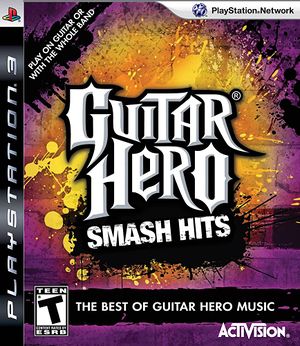m (Text replacement - "==Configuration==↵<!-- Enter mandatory non-default settings to be used. Recommendatory or default settings can be entered only on exceptional basis. -->{{config↵<!-- CPU configuration -->↵|ppu decoder = <!-- Interpreter (static), Interpreter (dynamic), Recompiler (LLVM) -->↵|ppu decoder notes = ↵|spu decoder = <!-- Interpreter (static), Interpreter (dynamic), Recompiler (A...) |
m (Text replacement - "==Configuration==↵<!-- Enter mandatory non-default settings to be used. Recommendatory or default settings can be entered only on exceptional basis. -->{{config↵<!-- CPU configuration -->↵|ppu decoder = <!-- Interpreter (static), Interpreter (dynamic), Recompiler (LLVM) -->↵|ppu decoder notes = ↵|spu decoder = <!-- Interpreter (static), Interpreter (dynamic), Recompiler (A...) |
||
| Line 57: | Line 57: | ||
|resolution scale threshold = <!-- Value between 1 to 1024 in the format 16 x 16 --> | |resolution scale threshold = <!-- Value between 1 to 1024 in the format 16 x 16 --> | ||
|resolution scale threshold notes = | |resolution scale threshold notes = | ||
|output scaling = <!-- Nearest, Bilinear, FidelityFX Super Resolution --> | |||
|output scaling notes = | |||
|shader mode = <!-- Legacy (singlethreaded), Async (multithreaded), Async with Shader Interpreter, Shader Interpreter only --> | |shader mode = <!-- Legacy (singlethreaded), Async (multithreaded), Async with Shader Interpreter, Shader Interpreter only --> | ||
|shader mode notes = | |shader mode notes = | ||
| Line 139: | Line 141: | ||
|read color buffers = <!-- On, Off --> | |read color buffers = <!-- On, Off --> | ||
|read color buffers notes = | |read color buffers notes = | ||
|handle rsx memory tiling = <!-- On, Off --> | |||
|handle rsx memory tiling notes = | |||
|disable on-disk shader cache = <!-- On, Off --> | |disable on-disk shader cache = <!-- On, Off --> | ||
|disable on-disk shader cache notes = | |disable on-disk shader cache notes = | ||
|disable vertex cache = <!-- On, Off --> | |disable vertex cache = <!-- On, Off --> | ||
|disable vertex cache notes = | |disable vertex cache notes = | ||
|allow host gpu labels = <!-- On, Off --> | |||
|allow host gpu labels notes = | |||
|rsx fifo accuracy = <!-- Fast, Atomic, Ordered & Atomic --> | |rsx fifo accuracy = <!-- Fast, Atomic, Ordered & Atomic --> | ||
|rsx fifo accuracy notes = | |rsx fifo accuracy notes = | ||
Latest revision as of 16:54, 3 March 2024
| Guitar Hero: Smash Hits | |
|---|---|

| |
| Developer(s) | Beenox |
| Publisher(s) | Activision |
| Series | Guitar Hero |
| Release date(s) | NA June 16, 2009 AU June 24, 2009 EU June 26, 2009 |
| Release type | Console exclusive |
| Genre(s) | Rhythm |
| Mode(s) | Single-player, Co-op |
| GameID(s) | BLUS30290 (IRD), BLES00549 (IRD) |
| Quick links | Check Compatibility Open Issues Search Google Wikipedia Page |
Guitar Hero Smash Hits (titled Guitar Hero Greatest Hits in Europe and Australia) is a music rhythm game and the fourth expansion game to the Guitar Hero series. The game features 48 songs originally featured in five previous games in the series—Guitar Hero, Guitar Hero II, Guitar Hero Encore: Rocks the 80s, Guitar Hero III: Legends of Rock and Guitar Hero: Aerosmith—redesigning the songs to be based on master recordings and to include support for full band play first introduced to the series in Guitar Hero World Tour. The game was developed by Beenox, published by Activision and distributed by RedOctane for release on the PlayStation 2, PlayStation 3, Wii, and Xbox 360 systems and was released around the world in the second half of June 2009.
The game reuses many elements from previous titles in the series, including Guitar Hero World Tour and Guitar Hero: Metallica. Beenox designed the game around playing the greatest songs of the series at venues located in the greatest places on Earth, and created venues based on various Wonders of the World for the game. While the game's soundtrack and expansion into a four-player band were well received by reviewers, the game was highly criticized for being a full-cost standalone title instead of being downloadable content for existing games in the series.
Configuration
No options that deviate from RPCS3's default settings are recommended for this title.
Known Issues
There are no reported issues with this title.